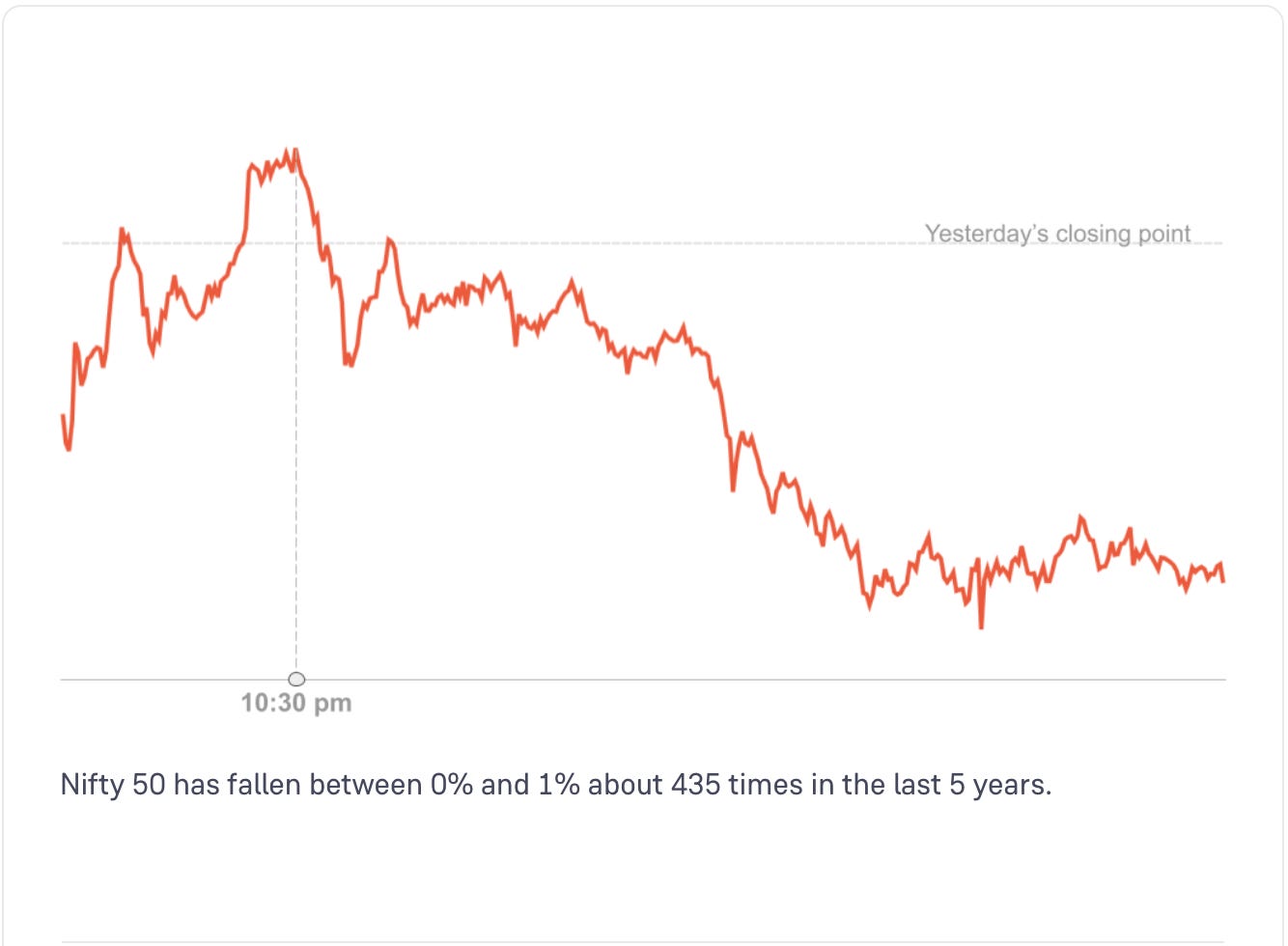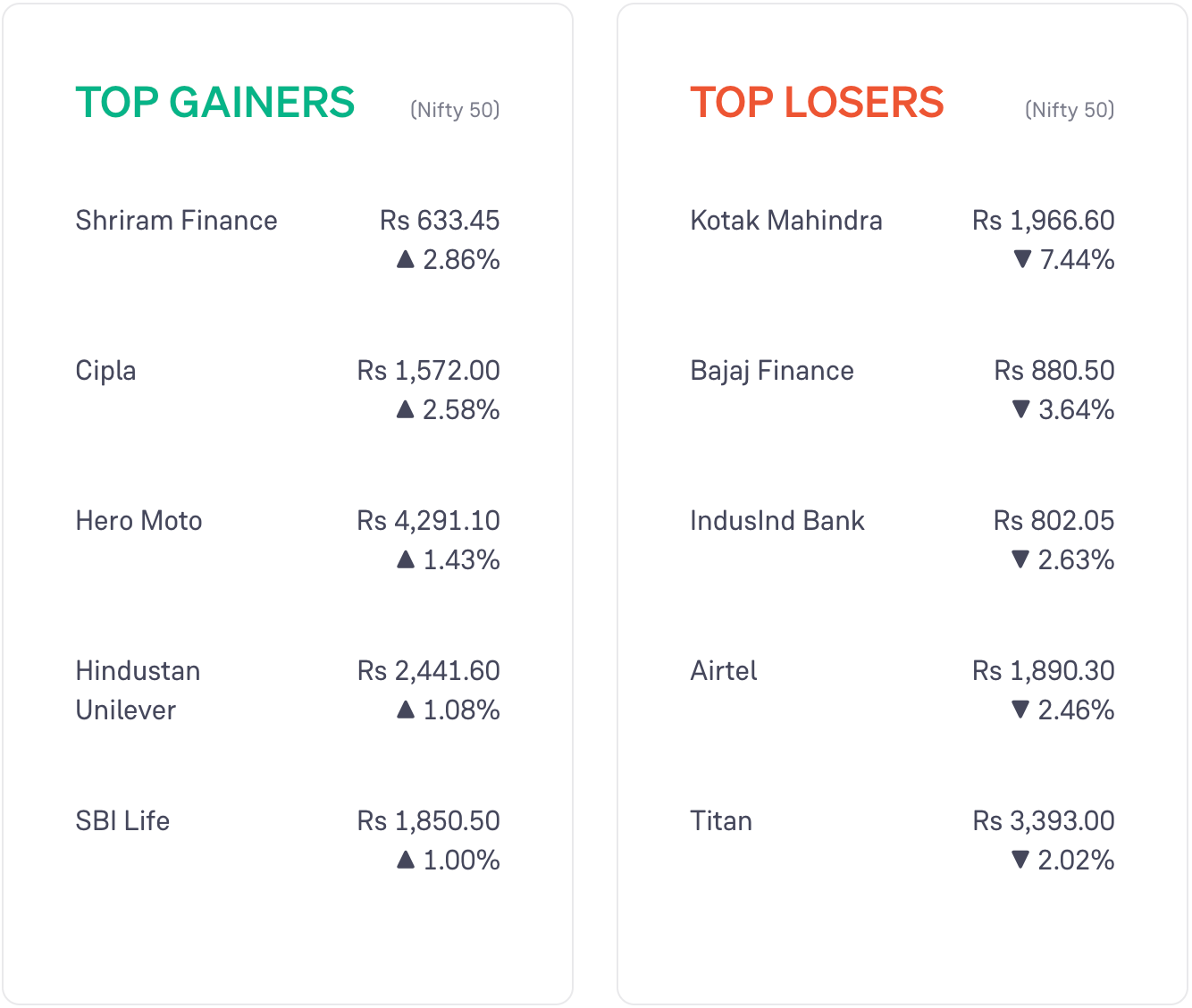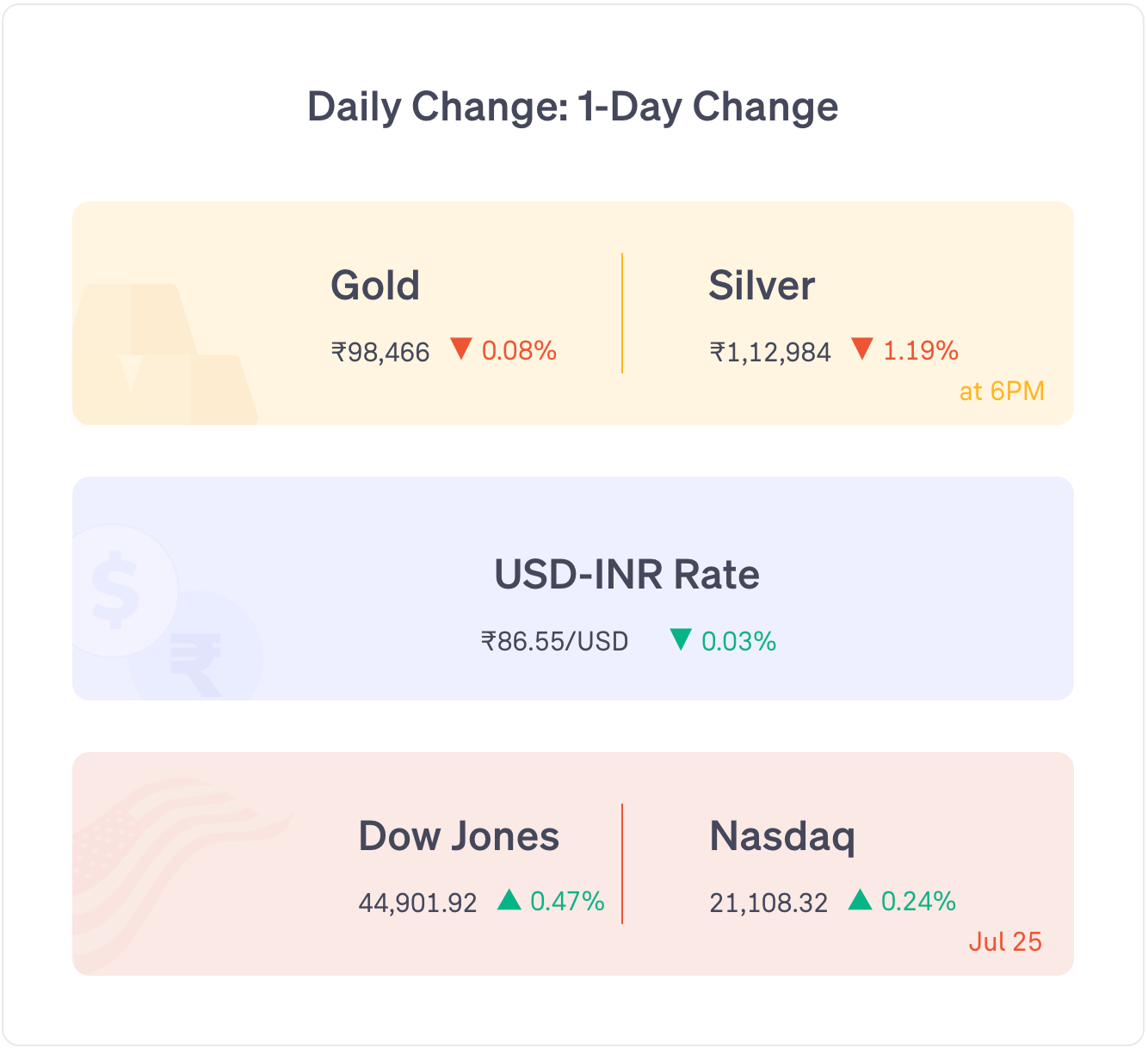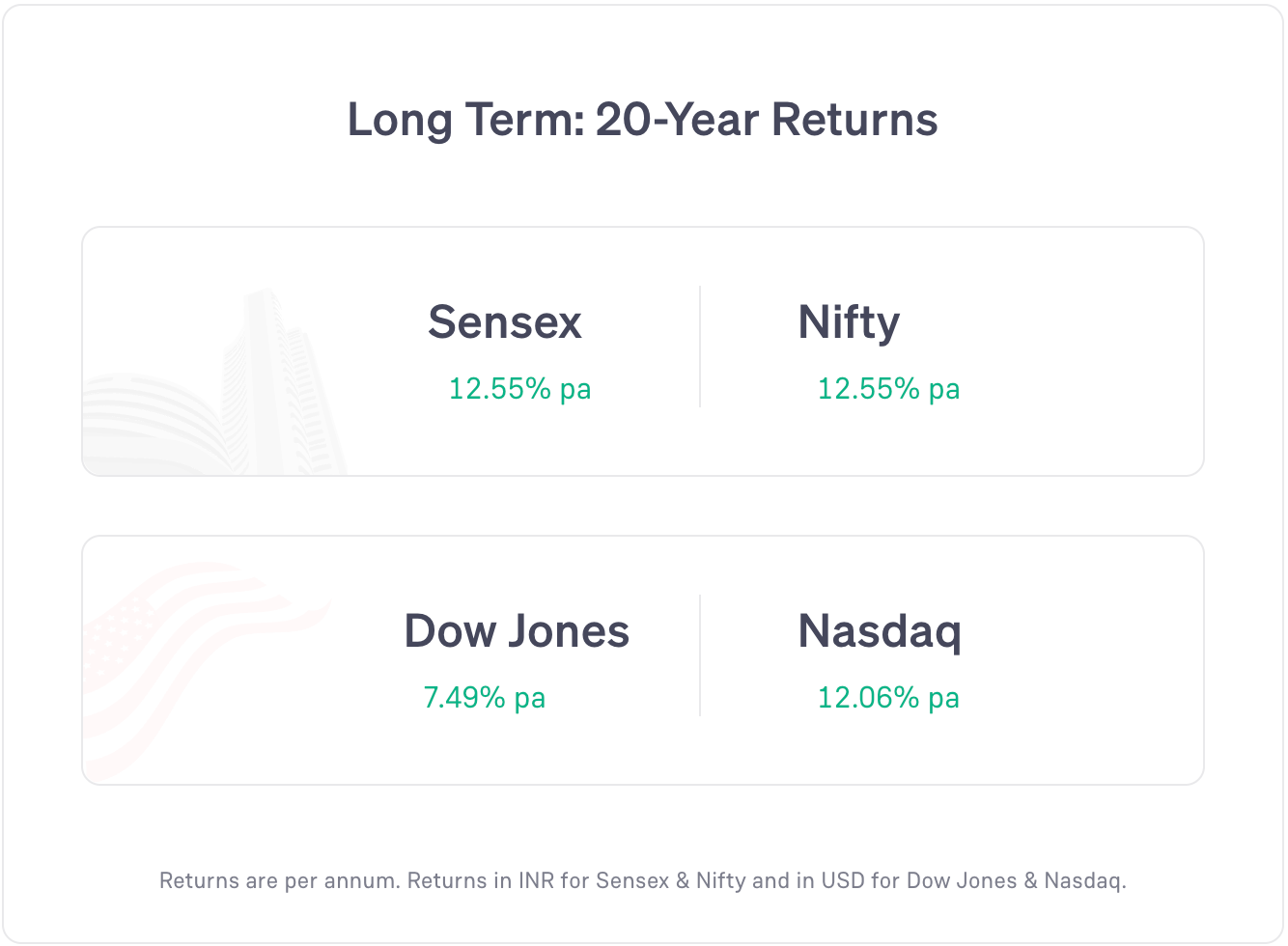Markets opened below Friday’s closing point.
Nifty 50 fell due to multiple reasons. The main ones being uncertainty around the India–US trade deal as the 1 Aug deadline nears, and continued FII selling.
Pharma stocks and FMCG stocks rose the most today. Realty stocks and media stocks fell the most.
Global markets: US and most European markets closed in green. Asian markets also rose.
News
The US and European Union have signed a trade deal, with the US imposing 15% tariffs on European goods.
India’s industrial production grew 1.5% year-on-year in June (vs 1.2% in May). Manufacturing sector grew 3.9% while mining and electricity sectors fell by 8.7% and 2.6% respectively.
The Ministry of Defence has signed an MoU to establish a cutting‑edge Mechanical & Material domain testing facility in the Tamil Nadu Defence Industrial Corridor at Tiruchirappalli. This is being developed under the Rs 400 crore Defence Testing Infrastructure Scheme to boost indigenous defence production.
Knowledge Realty Trust (KRT) received SEBI’s approval for a Rs 4,800 crore REIT IPO.
Amagi Media Labs applied for a Rs 1,020 crore IPO with SEBI.
Brigade Hotel IPO was subscribed 4.48 times. Retail Subscription: 6.40 times. IPO closed for subscription.
Stocks Updates
Bharat Electronics: net profit rose 23% year-on-year to Rs 970 crore in the April-June quarter.
Adani Green: net profit rose 60% year-on-year to Rs 713 crore in the April-June quarter.
Torrent Pharma: net profit rose 20% year-on-year to Rs 548 crore in the April-June quarter.
Mazagon Dock: net profit fell 35% year-on-year to Rs 452 crore in the April-June quarter.
NTPC Green: signed an MoU with Bihar State Power Generation Company to develop renewable and battery energy storage projects in Bihar.
Airtel: company subsidiary Nxtra (a data centre company) partnered with AMPIN Energy to source 125.65 MW of renewable energy through ISTS-connected solar-wind hybrid projects.
GMR Airports: commenced duty-free operations at the Delhi Airport from 28 July after its license agreement signed in August 2024.
Lodha Developers: net profit rose 42% year-on-year to Rs 675 crore in the April-June quarter.
Word of the Day
Amortization
It means gradually spreading out a cost over time, instead paying it all at once.
Amortization can be used in 2 cases: loans or business expenses.
Payments are made/recorded in regular installments until the full amount is covered.
Example: if a person takes a Rs 5 lakh loan, it can be amortized by paying in monthly installments of Rs 20,000 over a few years.
In case of businesses, if a company buys a software licence for Rs 1 lakh that lasts for 5 years, it will record Rs 20,000 as an expense every year.
This helps manage costs and gives a better understanding of the finances.
6 Day Course
Theme: quant investing
Day 1: Monday
What is quant investing?
Quant investing is a style or strategy of investing in stocks. It is very different from investing styles like value investing or growth investing.
In quant investing, humans do not make buy/sell/hold decisions directly. Human involvement is indirect.
The decisions are made by computer algorithms. Humans build the logic and algorithm based on which the computer decides what to do.
This concept can be very daunting to those who do not already understand it.
The advantages of quant investing are that it can take out human-emotions and biases from investing.
It works strictly based on the rules decided by the people/team making the quant algorithms/code which are called quant models.
Extremely simplified example: buy 20 shares of XYZ company if the share price is Rs 302 or below; the PE ratio is less than 35 but more than 20; the quarterly earnings growth is more than 10%.
Featured Question
Q. “In mutual funds AUM it shows some amount as cash holdings. Is fund manager get interest on it ? Or FM puts that money on any short term debt instruments? What does that cash holdings means. And it's benefit or loss to us ?”
Most mutual funds keep some portion of the total money in the form of cash.
This is to pay investors who are withdrawing money, for balancing risk, to keep money aside for future investment opportunities, etc.
This cash is usually invested in low-risk CBLOs (Collateralised Borrowing and Lending Obligations) where they earn an interest of around 6% to 7.5% per annum.
The interest received is added to the NAV value so investors gain from that interest too.
That money is not sitting idle making 0% returns. It is earning around 6% to 7.5% per annum.
Did you like this edition?
Leave a feedback here!






